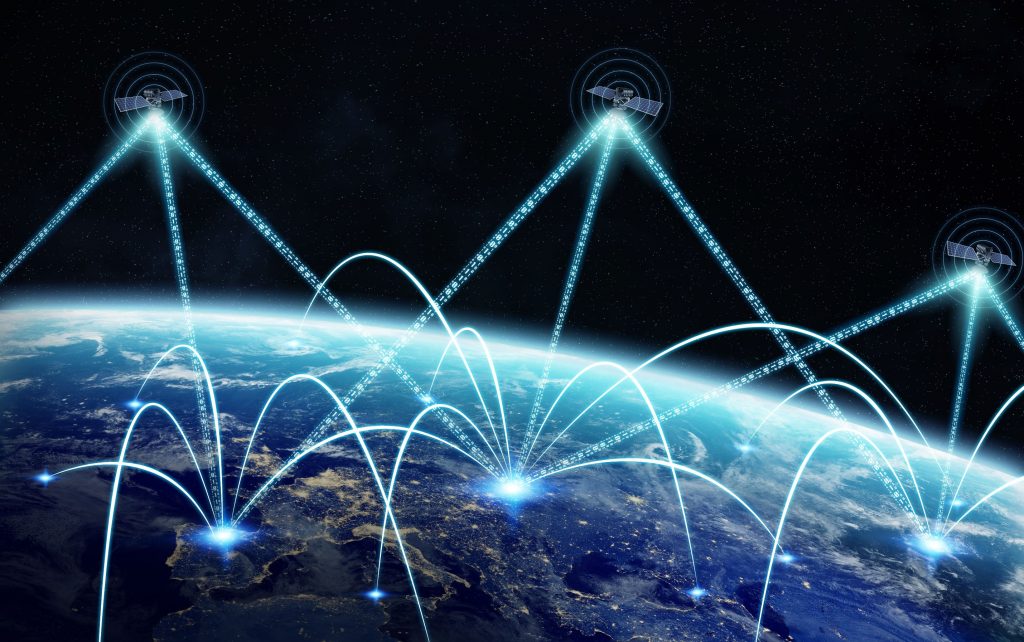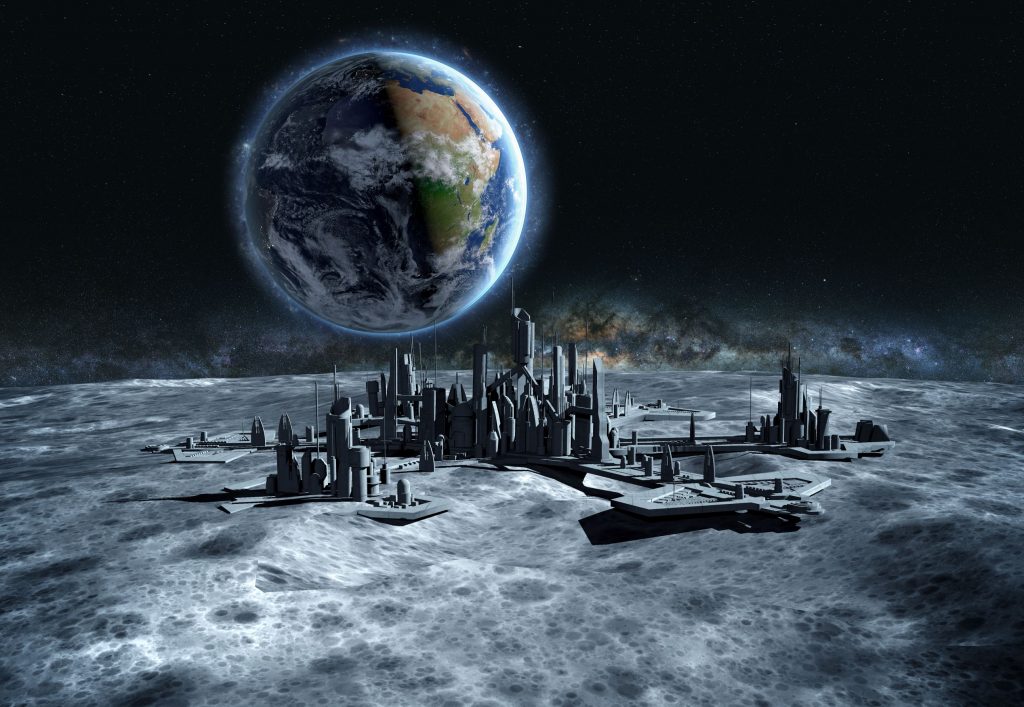2035 – A View from the Future of the UK Space Sector
Stuart Martin


If we are bold in our aspirations for space, and the way we use it to drive prosperity, sustainability, and security around the world, then by 2035 we can turn our UK space ambitions into a major global success story. Space will be at the heart of business, society and the entire economy.
The UK can be the epitome of a modern space nation, with all sectors benefiting from investments in space. UK energy companies will be generating electricity from space, and be established as global leaders in space-based solar power. With launches occurring weekly, and sometimes daily, UK companies will have taken advantage of the low gravity environment of space to develop unique new products, including new drugs and high-value materials. Our communications systems will be truly global, with systems from space delivering reliable and high-speed broadband to all corners of the world. Insights about the earth from space will be available at unprecedented detail and frequency, providing new levels of self-awareness and enabling dramatic improvements to the way we manage our planet.
Advances in robotics and autonomous systems will provoke a boom in off-planet infrastructure, including bases on the moon, orbital staging-posts and even space hotels. British innovations and the UK space ecosystem will be envied around the world, with many valuable businesses now aligned to these opportunities, including robotic manufacture, power and propulsion, and in-space logistics.
The industry itself will be humming. A nationwide network of space-themed business parks, focussed around end-users will drive a strong domestic market, and establish the UK as the world’s most space-enabled economy. Exports too will thrive, with the new 21st century global economy building itself around the capabilities of space, enabled by so many British companies. Space will finally have arrived as a General Purpose Technology, and the UK will once again be at the heart of a new industrial revolution.
This Vision for 2035 is audacious, but it is within reach. Now is the time for ambitious thinking and determined action. The UK space sector is already making great advances, and now we must put it on an even bolder trajectory of technology and innovation that will secure these outcomes for every global citizen. We must push more boundaries, provide more support to our space companies and scientists, to solve the challenges we all face, to make real what is now impossible, and drive a better, more sustainable world for the 21st century.

The UN Sustainable Development Goals (SDG) were launched back in 2015, and it was immediately clear that satellite technologies had a critical role to play. No other technology had the potential of space to sense and connect at a truly global scale.
The UK was amongst the first to respond, and the Catapult developed the Oceanmind platform in response to SDG 14 – to ‘Conserve and sustainably use the oceans’. In 2035, that platform, and others like it provide global insights for every industry sector from retail and mining, to international aid and charities. These insights are used to monitor emissions, global temperatures and land use, and have enabled a complete rethink of the global finance system to embed the value of natural capital. They help ensure sustainable and resilient supply chains, and have come to underpin society in a whole range of ways that has made them fundamental to our sustainable future.
Following the “wake up” call of the 2020 Covid-19 pandemic, the world finally started taking the challenge of climate change seriously. The clean energy revolution that followed led to the rapid development of space-based solar power, which is now a critical component of our global energy supply. The reduction in the cost of launch, and advances in robotics enabled us to construct these large and complex structures in space. As technology has improved, costs have become comparable with other green power sources, but without dependence on weather. Some of these plants now also produce green hydrogen, which is used as a completely carbon-neutral power source around the globe.

The world of truly universal communications is finally with us. Whether at sea, in the air, at home, in the city or camping in the desert everybody everywhere can be connected to reliable, secure and high-speed communications. This is enabled by new global standards that seamlessly blend fixed infrastructure, wireless and satellite systems so that most users have no idea what systems they are using, at any point in time.

The UK’s bold investment into OneWeb was the trigger that sparked this revolution back in 2020. This gave rise to a flood of businesses and investment into the sector (and the UK), and the strong foundation that already existed quickly transformed into a unique platform of accelerated innovation.
The demand for connectivity at home and on-the-move is now higher than ever. People expect seamless virtual experiences, entertainment and connectivity even in the remotest of locations. Government services, including healthcare, are increasingly decentralised and delivered at point of need, all enabled by satellite connectivity.

Every square meter on earth is now imaged by satellite in high resolution at least every 30 minutes. Users have these images available within minutes of being collected by satellite. Demand is extremely high – the breadth of industry waiting for this data and innovating on algorithms for new products has defied all expectations.
A whole new industry has been spawned, with its critical mass in the UK, to exploit these data to help respond to climate change and the environmental crisis. Companies provide information on greenhouse gas emissions, monitor progress of mitigation projects, and benchmark new global standards on climate compliance. A new ‘Green’ finance system has emerged, using satellite data to validate audit, and ensure sustainable and resilient supply chains across multiple industry sectors, and to protect the world’s most valuable habitats.
Continuing developments in technologies like inter-satellite communications and on-board artificial intelligence, are now allowing the next generation systems to be conceived. Fragmented constellations can provide full 3-dimensional views of the earth and are revolutionizing real-time infrastructure and environmental monitoring. The future is still evolving.
Almost all cars sold in 2035 offer of some level of automation, and more than half are capable of operating entirely without a driver. As a consequence, road death rates are plummeting. Our roads are the safest they have ever been.
Critical to this success has been the integration of satellite navigation systems with the new generation of low-earth-orbit communication satellites like OneWeb to provide highly resilient and reliable navigation services.
Developments in discrete antenna technology, and the seamless integration of terrestrial and satellite communications, means that for many the car has become more of a mobile entertainment centre than a means of transport.
Drones, long since the carrier of choice for urgent, high-value deliveries around town are now capable of longer range and greater lift capacity than ever. They are quickly becoming the work-horse of the direct-to-home delivery industry. Deliveries now include provision of medical supplies, and are even starting to offer remote diagnostic services. All made possible by the new generation of satellite navigation and communications systems which ensure reliable and safe operation.
The maritime sector too has been transformed. Most shipping companies now operate fleets entirely made up of unmanned vessels because of the huge benefits this offers in terms of safety, security and efficiency. Piracy, on-board fraud, dumping at sea and many other crimes of the high seas have been largely eradicated.

In 2035, new industries have been created that are improving lives on earth and have changed the way we think about space.
In the early part of this century, the International Space Station (ISS) created a pathway for experimentation into commercial applications of space, and its unique microgravity environment. Today, a range of companies are offering services for research and manufacturing in space, and have become critical to industries as diverse as aerospace and pharmaceuticals.
Space tourism has seized the imagination of the public, with pioneers Virgin Galactic now offering weekly sub-orbital flights from the UK, and other providers moving to a full-orbit experience. Everyone is now waiting for the opening of the first space hotels, an idea which has become a popular diversification for the space-based research centres.
The moonbase has now been permanently occupied for three years, and has become a new global focus for international collaboration. It is now a base for many nations, and is establishing itself as a stepping-stone for broader inter-planetary travel and exploration. The advances that led to this achievement spawned dozens of new business in technologies including reusable launch, orbital manoeuvring, and space-based robotics and manufacture. These are now some of the most well-known companies in the world, and the public has delighted in investing in them.
By 2035, the UK can be at the forefront of a new space revolution which is solving global challenges, seizing global opportunities and driving economic growth all over the world. Some of the concepts needed to achieve this are radical, but many are already within our existing expertise and capabilities in our universities, innovative start-ups, and major industry organisations.
This expertise is a great strength for the UK, and if we can unite it with ambition, then we have the foundation we need for future success.
The benefits and opportunities are there for all to see. From a truly sustainable planet, ubiquitous connectivity for all, revolutions in autonomy and a renewed interest in exploration beyond our planet, there is no limit to the possibilities space presents.
Our challenge is to be there, be involved, and make the future of space innovation and the future of UK industry one and the same thing.
